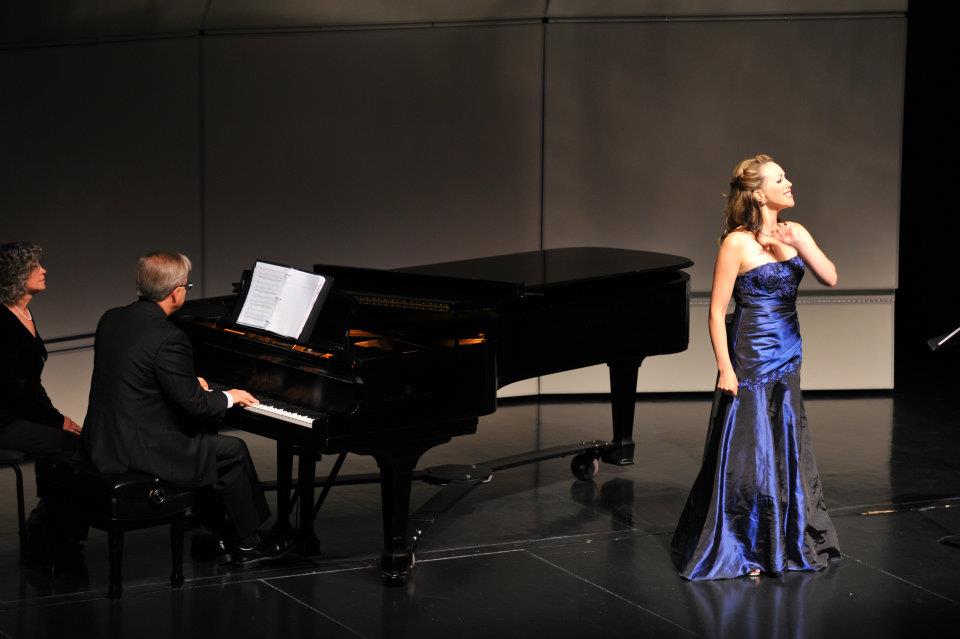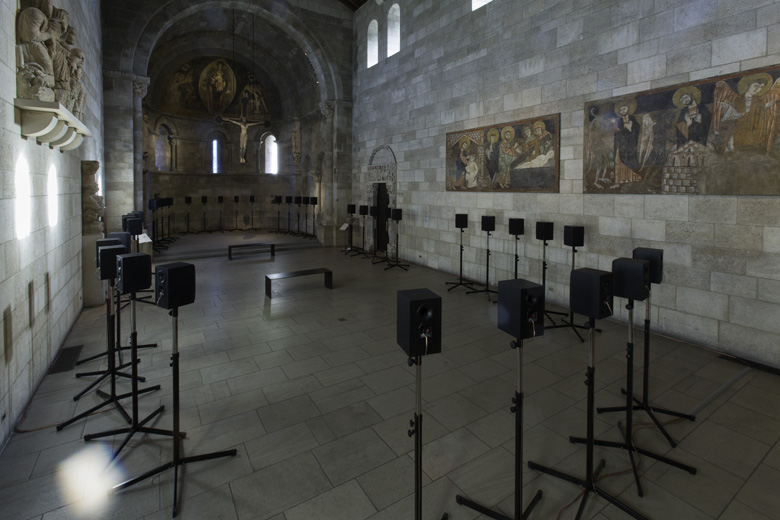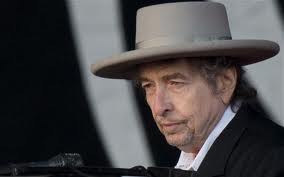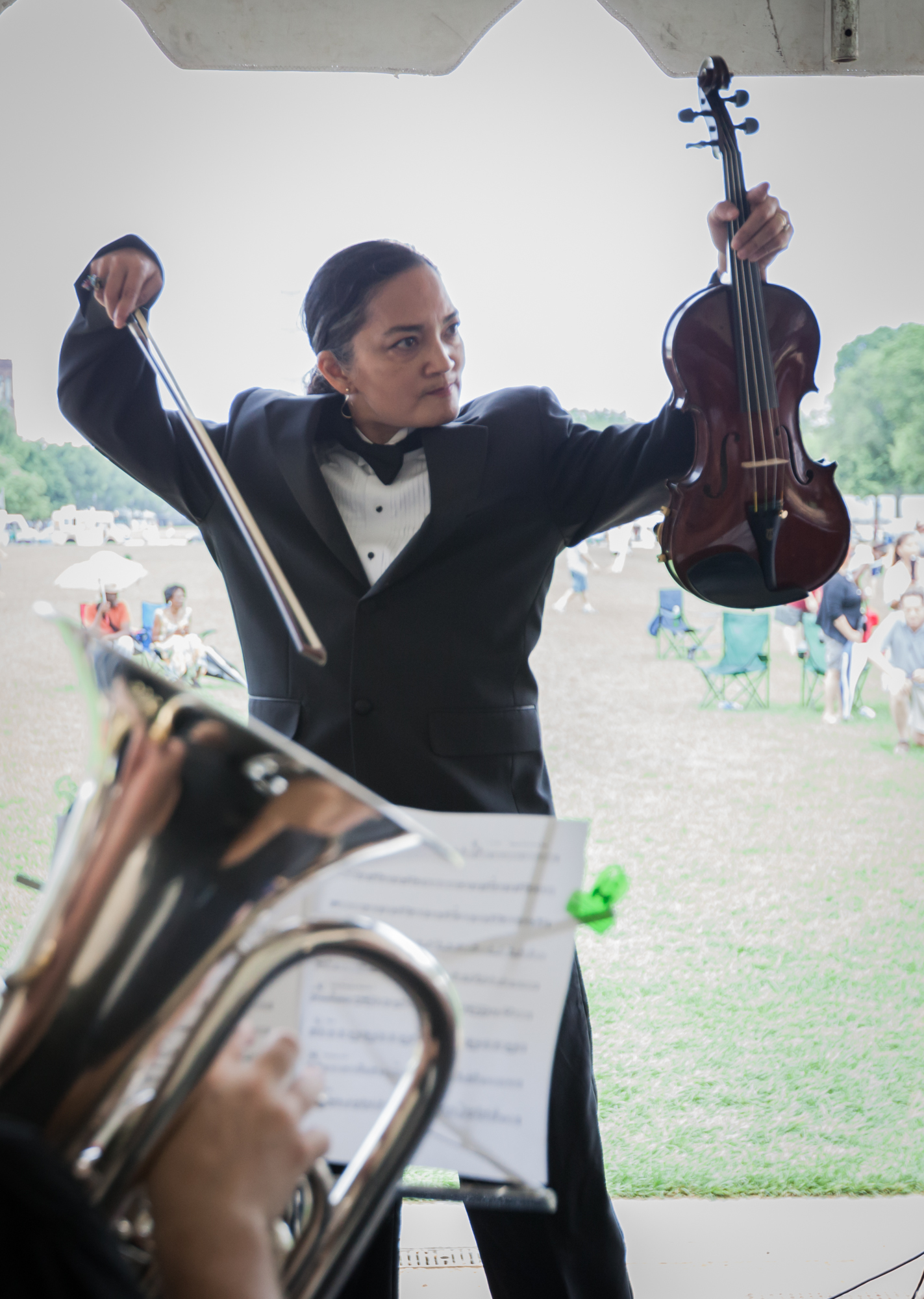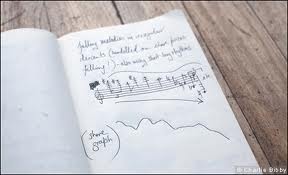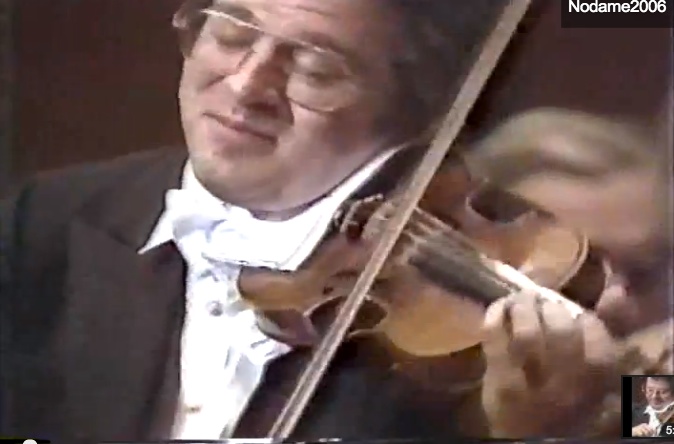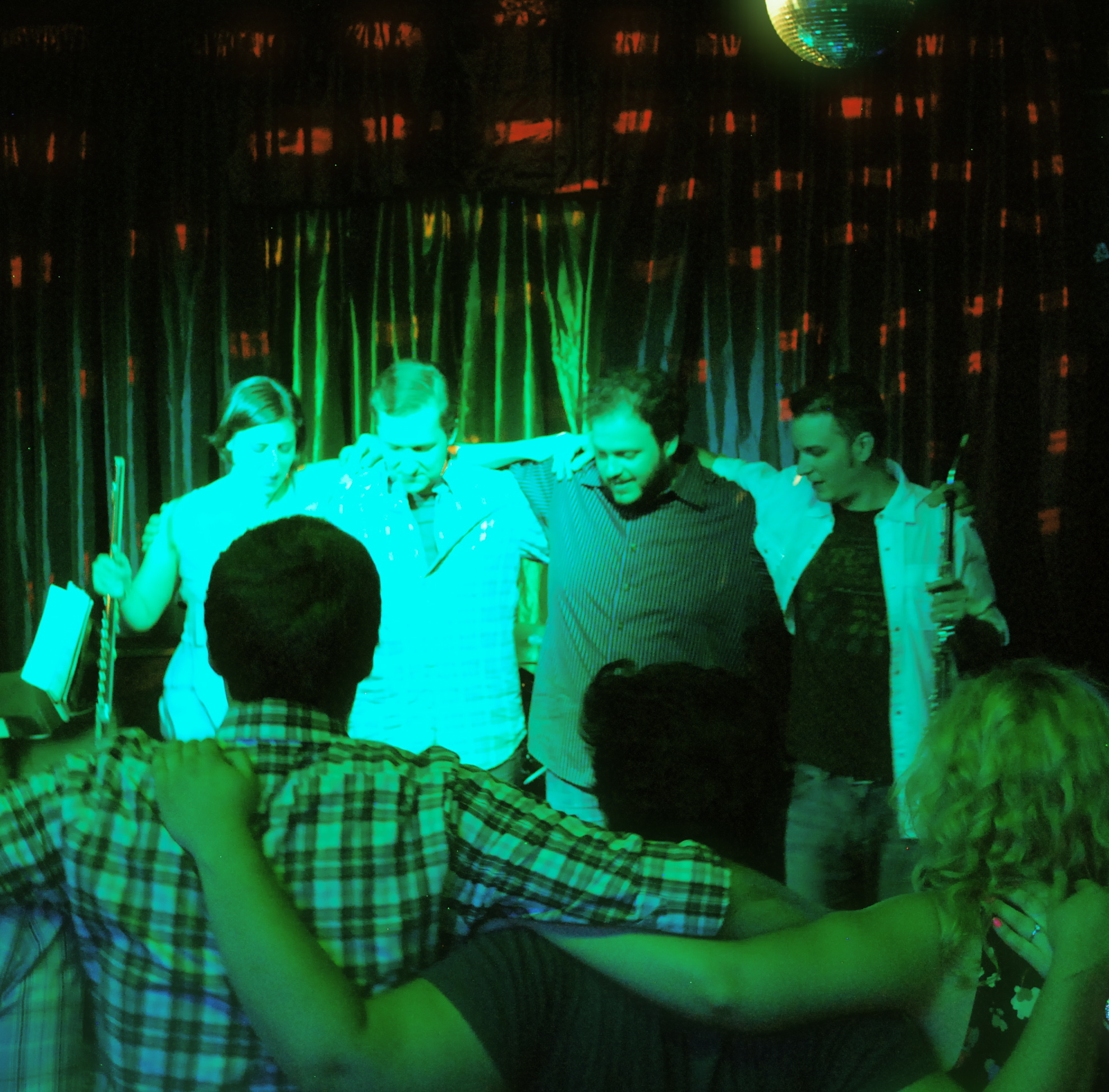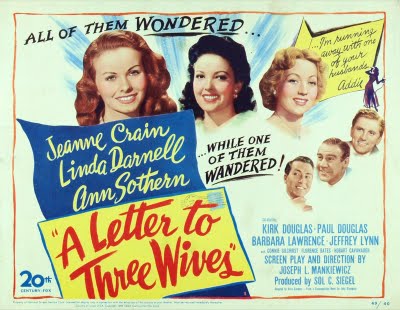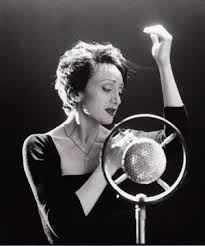In part one of her guest post, Caroline told her story. Born in the Yukon Territory in Canada, success as a jazz singer when she was just 19, vocal trouble, lessons from a classical voice teacher — and revelation! She devoted herself to classical music, and got a master's degree as a classical soprano. But: Like you, I hear and read about classical music attendance dwindling and I get a pit in my stomach. Firstly, because it affects my and my husband’s livelihood, and secondly because I’ve come to love this music so much that it deeply … [Read more...]
From Caroline Márkos: My career outside the box (1)
From Greg: A few months ago, I got email from a singer in Canada, who'd just found my blog. She was thrilled, because she'd been thinking some of the same things I and others here, readers and guest bloggers, think, and it was what she thought, too. Thoughts about how classical music needs to change. She'd never known that so many others agreed with her. I get email like this often enough, and it's heartening. Always makes me happy that I'm doing this blog. The singer — Caroline Márkos — and I exchanged a few messages, and in one of them I … [Read more...]
Monday post — awe and wonder
Something lovely from my friend Carole Adrian, who's Assistant to the Vice President and Dean of Academic Affairs at Juilliard. She emailed me and a few other people about a sound installation by Janet Cardiff, called "Forty Part Motet." It's at a place not normally known for contemporary art, The Cloisters, New York's famous museum of medieval art and architecture. Here's what Carole wrote (which I'm quoting with her permission): I went yesterday, and it is a transcendent, transformative experience. She has individually recorded the … [Read more...]
Friday post: Nobel prize for Bob Dylan?
File under: the culture outside classical music Bill Wyman, a writer and thinker who started out as a rock critic (and no, he's not the Rolling Stones' bassist) had a powerful piece in the New York Times last Sunday, urging that Bob Dylan get the Nobel Prize for literature. Which, from a classical music point of view, hits us right on a fault line. Dylan? Pop music? Nobel prize? Isn't the very idea an assault on art. Well, no. Not to anyone who knows Dylan. Bill (he used to write for me when I was music editor of Entertainment … [Read more...]
From Liza Figueroa Kravinsky: You scratch my back…
From time to time, Liza Figueroa Kravinsky has been guest-blogging here about how she's developing her Go-Go Symphony, an ensemble that combines classical music with Go-Go, the iconic dance music of Washington, DC. One reason her group is unusual is that the crossover is rooted in the people involved. Instead of having, as I've sometimes seen, classical musicians playing in a pop style, pop musicians writing classical music, or shotgun marriages in which a pop artist guests with a classical group, without much true artistic interchange — … [Read more...]
Portrait of a crisis
In my last crisis post, I said I'd talk more about crisis skeptics — those who don't believe there's a classical music crisis, or who think it's perpetual — and then lay out what I think the crisis is. But no. Better to describe the crisis now. For one thing, people are waiting for me to do it. And it'll be easier to engage crisis skeptics once the shape of the crisis is clear. The aging audience So what is the classical music crisis? As I see it, the crisis is systemic. It hits almost every aspect of classical music. So maybe, in the past, … [Read more...]
Monday post — sheer delight
Nothing complex this time. Just a joyful performance of the last movement of Mendelssohn's Violin Concerto, played live in 1982 by Itzhak Perlman, with David Zinman conducting the NY Philharmonic. Watch the video. My little son watches it, and seems to love every minute. I certainly do! … [Read more...]
Friday post — real change, claims of change
Questions faculty members at a music school asked me, in a discussion of new ways to train musicians for classical music's future: "What about artistic quality? Do we now focus less on this, and more on business skills and finding a new audience?" My answer: No. Of course we all — all of us in classical music — have to put artistic quality first, as I hope we always have. Or else what's the point? Especially if you want to reach a new audience. You'd better be at the top of your artistic game, because if you offer routine performances, your … [Read more...]
From Sarah Robinson: How the classical world went clubbing (2)
[In her first post, Sarah Robinson talked about her own experience playing in clubs — a story full of dancing and happiness, plus genre-bashing and delighted audiences. Some people might not recognize what she and her ensemble did as classical music, but I'd say (as she does) that classical music is changing, and that what she's done is part of our future. [Now comes her second post, in which she talks about many classical musicians who play in clubs, showing us what that's like, from a larger perspective. No one, to my knowledge, has written … [Read more...]
From Sarah Robinson: How the classical world went clubbing (1)
From Greg: Some months ago, a flutist named Sarah Robinson asked if she could interview me for a doctoral dissertation about playing classical music in clubs. I was sure she'd know her subject, since she's the codirector of Classical Revolution: L.A., Classical Revolution being (as many of us know) an umbrella organization for musicians who play classical music in clubs, and this, of course, being its very active Los Angeles branch. I told Sarah I'd be happy to talk to her, adding that I'd probably learn more from her than she'd learn from … [Read more...]
Crisis skeptics (1)
Continuing my posts about the classical music crisis. In the last one, I showed what classical music in the US — as an enterprise in our society — was like before the crisis hit. When, later, I show the full dimensions of the crisis we're now having, I think it'll be clear that the crisis is real. The footprint classical music leaves on our world — as measured by tangible things, like the presence classical music has in the media, on the airwaves (or digital transmissions), on how often it's mentioned in conversation, on how many tickets are … [Read more...]
Friday/Monday — education/inspiration
Apologies for missing my Friday post last week. I'd traveled to do a consulting job that turned out to be all-consuming. I thought i'd have some downtime in which I could write the post, but no. Though of course I should have anticipated that I wouldn't have time. So my explanation devolves into an apology for something very simple: bad planning. Here's my Friday and Monday posts combined. A teacher at a music school wrote a Facebook post about a music appreciation course she's teaching for students who aren't music majors. Three things … [Read more...]
Before the crisis
Yes, the classical music crisis, which some don't believe in, and others think has been going on forever. This is the third post in a series. In the first, I asked, innocently enough, how long the classical music crisis (which is so widely talked about) has been going on. Answers poured in, here and on Facebook and Twitter. The answers — as I said in the second post — suggested that we don't know how to talk about our crisis, because we don't have enough information. Compared, as I've said before, with data that's widely available about other … [Read more...]
Monday post — our new era
Here's a little story: When the Seattle‐based Degenerate Art Ensemble travelled to New York for two performances at the New Museum, they were able to see [the effect of word of mouth publicity] firsthand. "We had a talk back at the end," explained [co-artistic director Joshua Kohl], "and we asked the audience: 'Who here came because they saw some press or publicity for the show?' And two hands went up. 'Who came here because they heard about this through the museum?' And one or two hands went up. 'Who came because someone you know...from … [Read more...]
Friday post: Poulenc, Piaf, and 1940s carburators
Some news: my fall-semester Juilliard course, on how to speak and write about music, has started. Click the link for a week by week schedule. You can read all the assignments, if you'd like. More on the course later. *** One happy item is a new CD, The Rascal and the Sparrow, on which Antonio Pompa-Baldi plays Poulenc and Piaf. Or, more specifically, piano arrangements of Poulenc songs, and songs Piaf sang. Pompa-Baldi did the Poulenc arrangements himself. Such a fine idea, since both Poulenc and Piaf both breathed the air of Paris boulevards … [Read more...]

